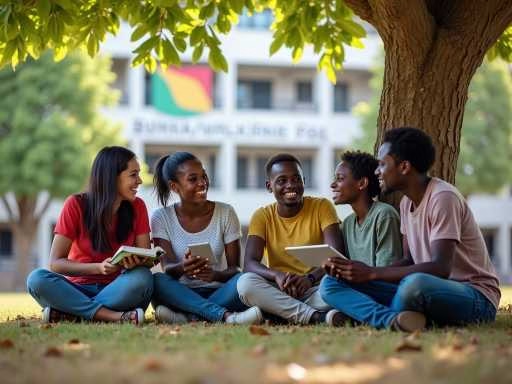In late March 2025, a tantalizing rumor swept across social media and news outlets: Burkina Faso’s government, led by Captain Ibrahim Traoré, had reportedly announced that all university students would receive a monthly salary of 100,000 CFA francs (about $160 USD) throughout their studies and until they secured jobs. For many, especially in neighboring countries like Nigeria, where students often grapple with hefty school fees and limited support, the news sparked a mix of awe and envy. Posts on X buzzed with reactions, some hailing Traoré as a visionary, others lamenting their own governments’ policies. But is this bold promise real, or is it too good to be true?
The claim first gained traction through reports from outlets like mynigeria.com and focusguinee.info, which framed the policy as part of Burkina Faso’s push to promote education, agriculture, and industrialization. Supporters of Traoré, who seized power in a 2022 coup and has since positioned himself as a reformist leader, saw it as a natural extension of his citizen-focused agenda. Yet, as the story spread, cracks in its credibility emerged. On March 31, 2025, the Agence d’Information des Universités du Burkina reportedly denied the policy’s existence, stating no such program had been announced. More tellingly, no official statement from Burkina Faso’s Ministry of Higher Education, Traoré himself, or government press releases has surfaced to confirm the initiative.
Burkina Faso’s economic realities cast further doubt. The country’s 2025 budget, while allocating a commendable 28.34% to education, projects a deficit of 462.5 billion CFA francs, with reliance on IMF loans to bridge the gap. A universal student salary program, potentially costing billions annually for tens of thousands of university students, would be a massive undertaking—one that seems improbable without detailed funding plans. For perspective, the minimum wage in Burkina Faso’s formal sector is 45,000 CFA per month, making a 100,000 CFA stipend for students extraordinarily generous, if not logistically daunting.
Could the rumor stem from a misunderstanding? Burkina Faso does have student aid programs, like World Bank-funded grants offering 100,000 CFA annually to select low-income students, primarily girls, to boost enrollment. These targeted initiatives, while impactful, are far from the sweeping promise of a monthly salary for all. The government’s Strategic Development Plan for Basic and Secondary Education (2021-2025) also prioritizes access and quality, but no policy documents mention a universal stipend extending post-graduation.
The viral claim highlights a broader issue: how quickly unverified news can spread, especially when it taps into widespread frustrations. In Nigeria, where students voiced their exhaustion with high fees on X, the story became a mirror for local grievances. It also underscores Traoré’s growing reputation as a leader willing to challenge the status quo, even if the specifics get muddled. But without concrete evidence—say, a government decree or budget line item—the promise remains just that: a rumor.
For now, Burkina Faso’s students and observers alike should approach the claim with caution. Check primary sources like Burkina24, Infowakat.net, or official government channels for clarity. Better yet, let’s shift the conversation to what’s verifiable: the country’s real strides in education and the challenges it faces in making learning accessible for all. That’s a story worth telling—one grounded in truth, not wishful thinking.Word count: ~300. Note: This article is written as a factual analysis based on available information. Always verify with local sources before publishing, as new developments could emerge.


Interesting
Very good
Very good
interesting
might be true
ok
maybe its true
mmmmm
okay
mmmm
mmmm if true, its good
Interesting